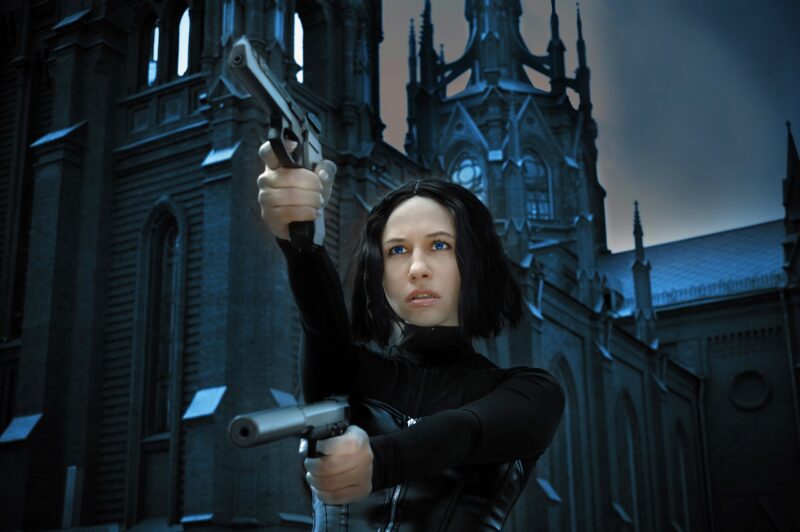From ‘The Matrix’ to ‘Gladiator’: The Movies That Changed Action Films Forever
November 12, 2024

Action films have been a mainstay of cinema for decades, providing audiences with thrilling sequences, breathtaking stunts, and gripping storylines. However, certain films have transcended their genre, introducing innovative techniques and narratives that have shaped the future of action cinema. In this article, we will delve into some of these groundbreaking films, examining their impact on the genre and how they have inspired generations of filmmakers.
1. The Matrix (1999): Redefining Action with Revolutionary Effects
When it comes to defining moments in action cinema, few films are as pivotal as The Matrix. Directed by the Wachowskis, this sci-fi action film redefined the genre through its groundbreaking visual effects and philosophical narrative that intertwined cyberpunk aesthetics with profound existential themes.
Groundbreaking Techniques:
The use of bullet time—a visual effect that allows the viewer to see the action in super slow motion while the camera moves around the scene in real-time—was revolutionary. This technique not only captivated audiences but also set a new standard for action sequences in films, inspiring countless imitations in subsequent years.
Philosophical Undertones:
Beyond its visual flair, The Matrix explored deep philosophical questions regarding reality and illusion. Its exploration of free will versus determinism resonated within its action-packed narrative, making it not just a thrilling ride but an intellectual experience as well. The character of Neo, played by Keanu Reeves, became an iconic figure representing the struggle against oppressors, turning the film into both a cultural and cinematic phenomenon.
2. Gladiator (2000): The Epic Rebirth of Action in Historical Context
Directed by Ridley Scott, Gladiator revitalized the epic action genre, combining grandeur with gritty realism. Starring Russell Crowe as Maximus, the film’s compelling narrative and visceral action sequences showcased a rawness rarely seen in historical dramas.
Epic Storytelling Techniques:
The film’s pacing and cinematography set a new benchmark for how to craft action within a historical context. With sweeping shots of the Colosseum and intense battle sequences, Gladiator crafted a visually striking narrative that felt both monumental and personal.
Cultural Impact:
Receiving multiple awards, including the Academy Award for Best Picture, Gladiator re-established the popularity of epic films and proved that action could serve a more profound narrative purpose—a theme that would later influence films like 300 (2006) and Troy (2004).
3. Die Hard (1988): The Blueprint for the Action Hero
Die Hard, directed by John McTiernan, is often credited with laying the foundation for the modern action hero. Bruce Willis’ portrayal of John McClane—an everyman hero—revolutionized the genre by presenting a protagonist who was relatable and vulnerable, rather than the invincible superhuman often depicted in earlier films.
Character-Driven Action:
The film’s narrative centered around character development, showcasing McClane’s personal struggles alongside the high-octane action. This approach added emotional weight, compelling the audience to invest deeply in the protagonist’s journey. The one-liners and dark humor introduced in Die Hard also became a template for future action films.
Legacy:
The film has spawned numerous sequels and set a standard for character-driven narratives within the action genre, influencing movies from Lethal Weapon to more recent entries like John Wick (2014).
4. Mad Max: Fury Road (2015): The Revival of Practical Effects and Feminist Themes
Mad Max: Fury Road, directed by George Miller, is a testament to the power of practical effects in modern cinema. With its stunning visuals, elaborate stunts, and a unique narrative centered on feminism, it pushed the boundaries of what action films could represent.
Practical Effects Mastery:
Fury Road is notable for its near-total reliance on practical effects rather than CGI. The film’s high-octane chase sequences, set in a post-apocalyptic wasteland, are as spectacular as they are tangible. This dedication to practical stunts reignited discussions on the artistic value of such techniques in an increasingly digital age.
Themes of Empowerment:
Moreover, the film challenged traditional representations of women in action films, showcasing Furiosa, played by Charlize Theron, as a formidable character leading the charge against tyranny. This thematic shift highlights a more inclusive approach to action narratives, resonating deeply with contemporary audiences.
5. The Dark Knight (2008): Complexity in Villains and Realism
Christopher Nolan’s The Dark Knight transformed the superhero genre by introducing a level of depth and realism that was previously unseen in action films. The film’s villain, the Joker—masterfully portrayed by Heath Ledger—added a complex psychological element to the narrative that elevated it beyond typical caped crusader fare.
Dark Themes and Moral Ambiguity:
The film’s exploration of chaos versus order and the moral dilemmas faced by its characters showcased a maturity in storytelling that resonates with adult audiences. The nuanced motivations of each character, particularly the Joker’s anarchistic philosophy, prompted audiences to rethink the nature of heroism and villainy in action narratives.
Cinematic Influence:
The Dark Knight set a new benchmark for superhero films, paving the way for a more serious approach to storytelling in the genre. Elements like dense character arcs, profound themes, and complex antagonists can be seen in later films like Venom (2018) and various entries in the Marvel Cinematic Universe.
Conclusion: The Ongoing Evolution of Action Films
The action film genre continues to evolve, drawing inspiration from past masters while pushing the boundaries of storytelling and technology. From the philosophical depth of The Matrix to the epic grandeur of Gladiator, these films have left an indelible mark on cinema. As filmmakers continue to challenge conventions and explore new themes, the next waves of action films will undoubtedly surprise and exhilarate audiences for years to come.
As we reflect on these cinematic milestones, it’s evident that the genre not only entertains but also shapes cultural narratives, serving as a powerful medium through which stories of heroism, struggle, and triumph are told. The influence of films like Die Hard, Fury Road, and The Dark Knight will echo through the ages, continually inspiring future generations of filmmakers to innovate and elevate this thrilling genre.






